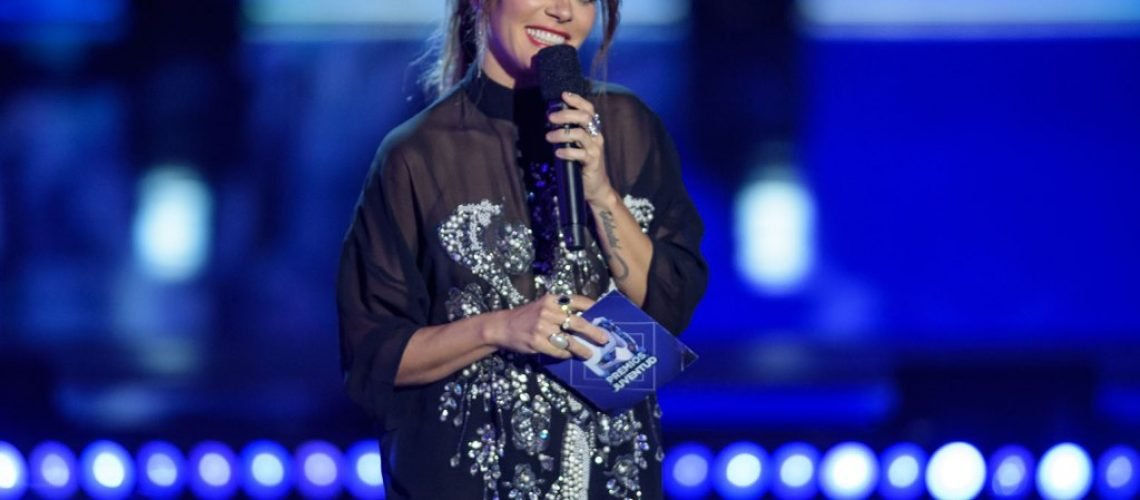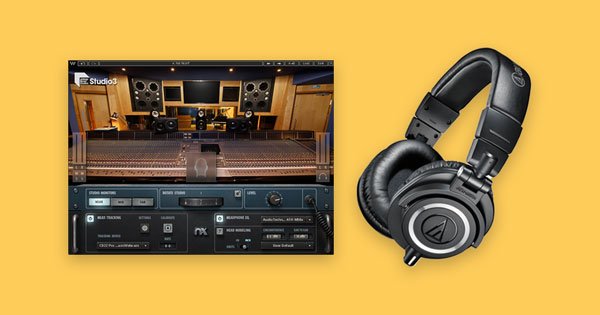It’s to be expected that teenagers will want to leave home. And so, as it turns 19 years old, Univision’s Premios Juventud – or Youth Awards — is preparing for its first foray outside Miami, with the show slated to air live on Thursday (July 21) from San Juan’s Coliseo de Puerto Rico. The show will be hosted by a quartet of personalities — Dominican-American Prince Royce, Grupo Firme‘s Eduin Caz, Mexican pop singer Danna Paola and Dominican TV star Clarissa Molina — that represent a palette of origins and musical genres.
Explore
See latest videos, charts and news
See latest videos, charts and news
The move out of Miami — conceived as a one-off as of now — had long been discussed but made sense as the general population returns to pre-prandemic activities, says Ignacio Meyer, Univision’s executive vp of music and non-scripted entertainment.
“Young musical culture in large part is born in a few regions and one of them is Puerto Rico,” says Meyer. “We thought following the pandemic and following COVID and being locked up, we wanted to celebrate young people getting back out into the world.”
While the notion of “young people” and television may seem contradictory in an age of streaming and social media, Premios Juventud, whose winners are voted for by fans, is that rare awards show that has managed to see a recent rise in ratings. Last year, according to Nielsen numbers supplied by Univision, the show’s total coveted audience of U.S. adults ages 18-49 rose by 31% compared to the previous year. In contrast, the audience for most mainstream music shows, including the Grammys and the AMAs, dropped by double digits.

Ignacio Meyer
TelevisaUnivision
The growth, says Meyer, is in part thanks to Premios Juventud’s focus on social change. For the past four or five years, the awards have celebrated not only music, fashion and pop culture in general but have devoted substantial airtime to celebrities and “regular people” doing good.
This year, awards will be doled out in 33 categories, including 10 new categories that reflect changes in the music and pop culture ecosystems, including “Girl Power” (for a favorite female collab) and “Top Beatmaker” (for DJs and producers). In addition, Premios Juventud will honor its “Agents of Change” — both artists and fans who are using their platforms for the common good.
In the pandemic age, Meyer is confident that his approach to celebrating not just individual success but those contributing to the best interests of others will again drive viewers to the show.
What exactly is Premios Juventud?
Premios Juventud is a different award show that rewards equally artists and young people for extraordinary accomplishments in society. It’s still a youth award show that celebrates pop culture, film, music and social media. But within that, we tried to give it a reason to exist and differentiate it. So we took the core values of young people and what they stand for today and tried to give them a voice. And we created the “Agente de Cambio” (Agents of Change) special awards. These are people we recognize for social contributions, whether you are an artist using your platforms, or a regular person doing extraordinary things. We don’t give out special awards for music at PJ. All the special awards are based on being an “Agente de Cambio.”
Before we get to your agents of change, how do you determine your core nominees and winners?
Fans vote for the winners. Nominations are a combination of Uforia [Univision’s radio and music events division] data and streaming data. The lifestyle categories are determined by whatever metrics they have: Their digital ecosystem, ratings if they’re on television and mostly, we measure on social media.
The most subjective element is in the choice of the category. And it is subjective because we’re celebrating popular culture. So we’re trying to read what people are interested in. But it starts before that. Every one of our shows tells a story, so we start with a theme, and this year, it’s “Celebra tu Pasión” (Celebrate Your Passion).” It’s a passion about music, it’s the passion of being young and excited about a better future, it’s the passion about coming out and celebrating summer after the pandemic, it’s the passion about music is younger and with a lot more genres. And where do we see the passion reflected? On social media, which reflects pop culture. So we’re trying to find the topics that are of interest on social media, we create the categories from there, and then we surround ourselves with data.
You have 33 awards and many of them are quirky, and they change every year. Why is that?
We partner with Uforia for the music-related awards, and those awards evolve and adapt every year because PJ reflects pop culture. We change or add categories that are indicative of what’s going on. This year we added 10 categories, like “Mi Artista Favorito de Streaming (My Favorite Streaming Artist),” which is an effort on our end to unearth artists who live in an ecosystem outside radio.
So, let’s go back to your Agents of Change. Who are they?
We typically have three to four awards and we try to give them for different reasons and [to people] representing different cultures. This year, Kany García is an “Agente de Cambio” for her defense of women in many aspects. She uses her platform and influence to speak on important issues. Jenni Rivera is getting the award posthumously for the work she started with her foundation, and we’ll give the award to her children. And we’ll also honor three or four regular people. It’s typically a young person between the ages of 16 and 22 who has done something extraordinary. For example, two years ago, we honored the kid who was the most effective at water delivery during Hurricane Maria.

Daddy Yankee accepts an award on stage during Premios Juventud 2019 at Watsco Center on July 18, 2019 in Coral Gables, Fla,
Jason Koerner/GI
Puerto Rico hosted a successful Telemundo’s Premios Tu Música Urbano, just a month a prior, on the Telemundo Network. How do you differentiate yourselves?
We compete for eyeballs, but I think our purpose is very different. Premios Tu Música Urbana has a very important purpose, which is celebrating urban culture. We celebrate youth culture across fashion, lifestyle, music and video. And our commitment with the community is very important. We want to celebrate young people for their good deeds. Everyone criticizes millennials, but statistics tell a different story. They’re more engaged on social issues, they care, they’re willing to take their professional career and do something worthwhile.
But this wasn’t always the case with this show. When and why did you shift direction?
We actually put it together [four to five years ago] when all this research came out about millennials and what they stood for. When we did our research we found they were doing extraordinary things and didn’t have a window to be recognized. And artists are very passionate about that. It started with, “Hey, would you ‘sponsor’ someone in our award show? You may not know this kid, but he’s working for a solution for irrigation in the fields, and he’s a fan of yours.” We wanted to do something meaningful for the community. People look at our network to stay connected with who they are and what’s important to them, and music is one of those passion points.
You have an awards show designed for young people at a time when linear television viewership is going down. What is your strategy?
We start by telling a story that generates memorable moments. We are not simply about having an artist sing a popular song. And we do bring elements for youth but also elements that invite young viewers to remember where they come from, who they are and what their connection to culture is. We mix genres and define what is pop culture for Hispanics, which is a mix of cultures and generations. And this is why I think people are interested in the shows we design. As far as distribution, it depends on our agreements, but each year you can see more and more of our content on social media and starting this year, on Vix, our streaming platform.
You just acquired the rights to the Latin AMAs, which means the Univision/Televisa group now has four tentpole awards: Premios Lo Nuestro, Latin Grammys, Latin AMAs and Premios Juventud. It feels like you’re moving against a trend. Many mainstream awards shows didn’t air on television in the past year.
[Awards shows] are still among the highest rated shows [for us], and we deliver upwards of 90% live viewing [for Premios Juventud] on that night. It’s not a show you watch in bits and pieces; it’s a moment in time and family viewing. Yes, we are not at the viewership levels we had years ago. But in the past four, five years we’ve seen growth in viewership when others have gone down.
What can mainstream networks learn from PJ in reaching young people?
To represent the audience on television. Celebrate young people and what’s important to them. I think we do that in a more explicit way. Award shows have always been about telling the audience what the definition of excellence is. It’s been about educating the audiences. But if we want people to come watch us, it’s no longer enough. Now, it’s about, entertain me, then tell me. As a consumer, I want to see the coolest possible things. Give me something only Premios Juventud can give me. Then I’ll watch the show.
Premios Juventud air live July 21 on the Univision network at 7 pm ET, 6 pm C.




